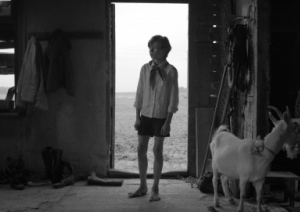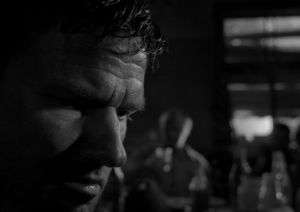The 19th of June ended the International Film Festival The Mirror, held in Andrei Tarkovsky’s name, with the prize for visual concept awarded to director Laila Pakalniņa’s feature film “Dawn” (operater Wojceich Staron).

The festival was established in 2007, for the 75th anniversary of great Russian film director Andrei Tarkovsky’s memory. Although The Mirror is held in Ples and Ivanovo – two small towns near Volga – instead of in Moscow or St. Petersburg, it is a major annual international event, offering high-quality and creative experiments to open the film program. The Mirror showcases around 150 films, bringing together 250,000 spectators and visitors.
This is without doubt a very colorful festival in the local environment. Although the Ples main street is still named after Lenin, the town is a Russian dream – a pre-revolutionary paradise on the shores of the Volga, painted by Levitan. By contrast, Ivanova is a textile city, with not only a street but also a monument dedicated to Lenin, however viewers here have been interested in auteur cinema for many years and thus it’s proof that these types of films are not only for film specialists. The spectator sincerity in their desire to enjoy a diverse international film program shows their openness to cultural events and what is happening outside their country.
“Dawn” is director Laila Pakalniņa’s view of fanaticism and dictatorship with the role it plays to society and the individual’s life in mind, including Soviet saturated images grotesque as a pioneer Anton has kolkhoz disloyal father. The fact that political ideology was not flattered in the film “Dawn” yet it was both screened and won praise at a festival in Russia is proof of the public need for a different perspective on the world around you. And the festival prize – the mirror spreading the bird’s wing – continues to confirm the ability of art to transcend reality.
Latvian-Polish-Estonian co-produced films have previously received direct praise for the visual outfit, which helped lead the director to Polish operator Wojceich Staron. The filmed was recently screened at the prestigious Seattle Film Festival, and movie reviewer Tony Kay ranked “Dawn” among the three most impressive in this year’s festival, highlighting the black and white frame offering elegance even through the brutal episodes shown in the transcendental beauty.
The world premiere was at the end of 2015 in Estonia, and since then “Dawn” has been featured in festivals in Sweden, Italy, Lithuania, Germany, Mexico, Iran, Slovenia and the United States. After the presentation in Russia, it travels to Peru where on the 30th of June it will play in the Lima International Film Festival and in Serbia, the Palic European Film Festival.
The film was created in association with the National Film Centre and the State Culture Capital Foundation, the Polish Film Institute and the Estonian Film Institute.




